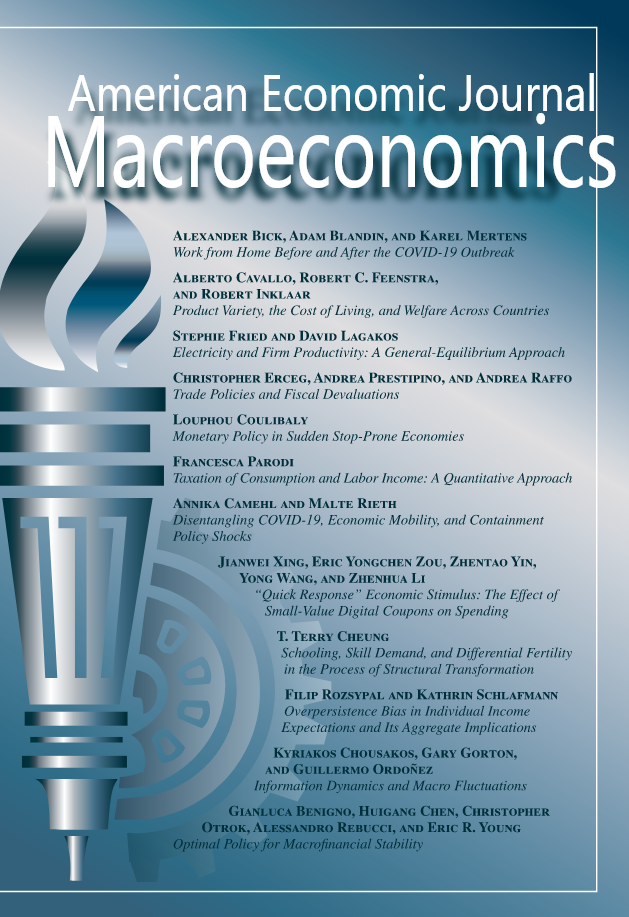雇佣补贴的国家依赖有效性
IF 5.7
1区 经济学
Q1 ECONOMICS
引用次数: 0
摘要
就业创造对冲击的反应是顺周期的,而就业破坏的反应是反周期的。这个新发现可以用异质企业模型来解释,在异质企业模型中,雇佣成本会导致就业调整的不均匀性。该模型预测,旨在通过鼓励创造就业机会来刺激就业的政策,如招聘补贴,在经济衰退期间的效果明显较差:在这些时期,很少有公司接近招聘门槛,而许多公司接近解雇门槛。针对就业破坏幅度的政策,如就业保护补贴,在这种时候特别有效。(jel e24, e32, h25, j23, j64)本文章由计算机程序翻译,如有差异,请以英文原文为准。
The State-Dependent Effectiveness of Hiring Subsidies
The responsiveness of job creation to shocks is procyclical, while the responsiveness of job destruction is countercyclical. This new finding can be explained by a heterogeneous-firm model in which hiring costs lead to lumpy employment adjustment. The model predicts that policies that aim to stimulate employment by encouraging job creation, such as hiring subsidies, are significantly less effective in recessions: these are times when few firms are near their hiring thresholds and many firms are near their firing thresholds. Policies that target the job destruction margin, such as employment protection subsidies, are particularly effective at such times. (JEL E24, E32, H25, J23, J64)
求助全文
通过发布文献求助,成功后即可免费获取论文全文。
去求助
来源期刊

American Economic Journal-Macroeconomics
ECONOMICS-
CiteScore
8.20
自引率
1.70%
发文量
58
期刊介绍:
American Economic Journal: Macroeconomics focuses on studies of aggregate fluctuations and growth, and the role of policy in that context. Such studies often borrow from and interact with research in other fields, such as monetary theory, industrial organization, finance, labor economics, political economy, public finance, international economics, and development economics. To the extent that they make a contribution to macroeconomics, papers in these fields are also welcome.
 求助内容:
求助内容: 应助结果提醒方式:
应助结果提醒方式:


